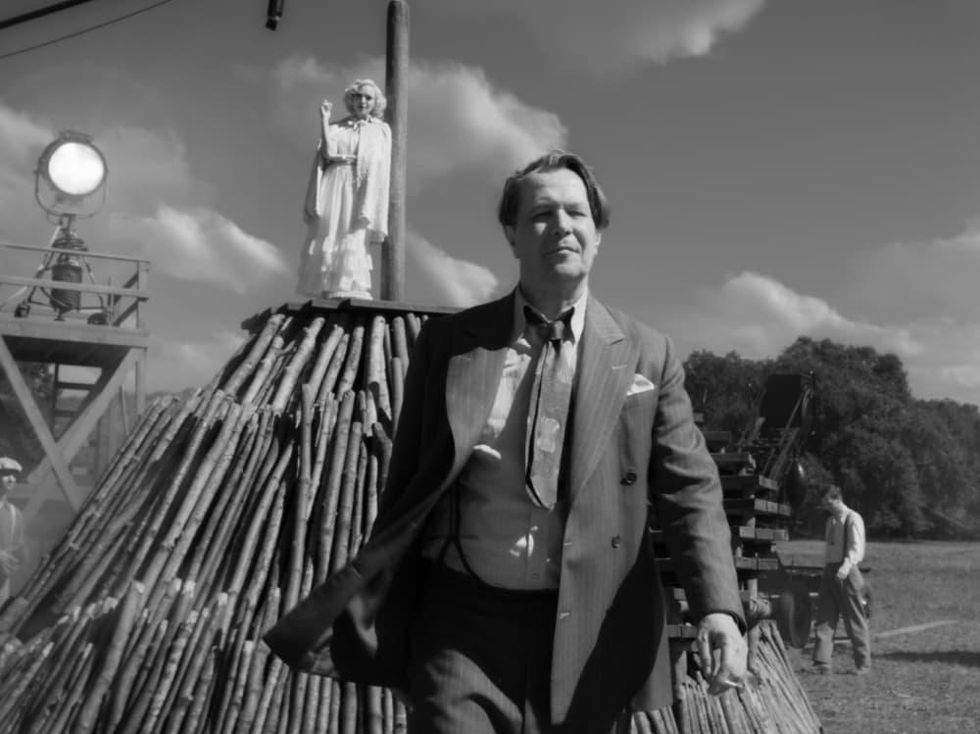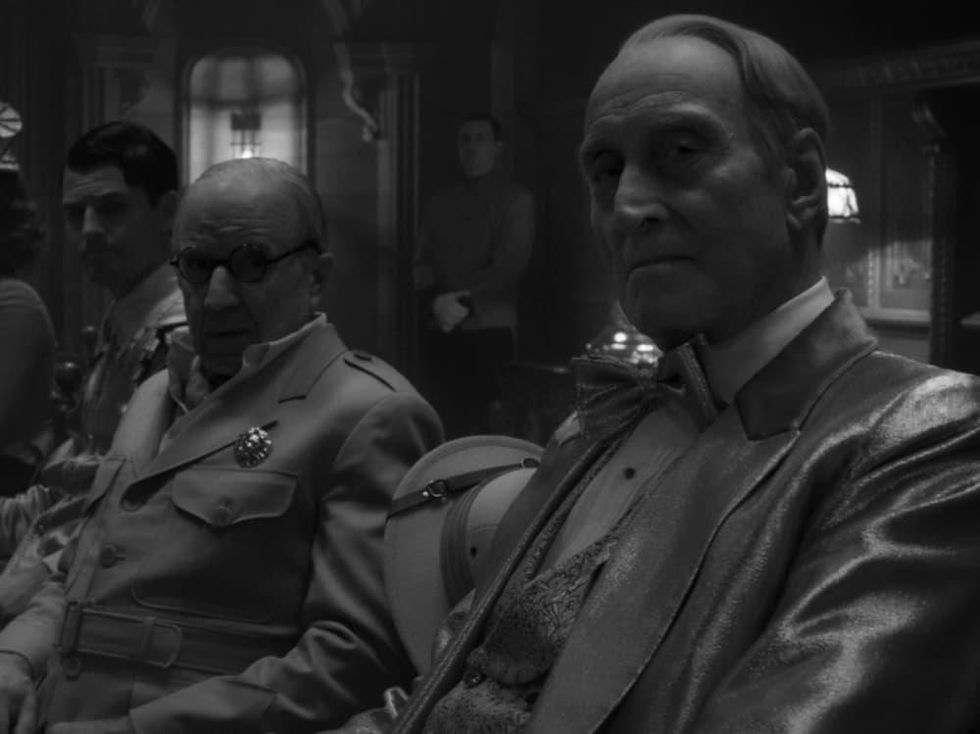Movie Review
Mank rescues forgotten screenwriter from dustbin of history
There are few subject matters that Hollywood likes to tackle more than moviemaking itself. Whether through allusion, homage, or straight-up biographies, it has gazed at its own navel countless times over the past 100 years. And when someone decides to look at one of the greatest films of all time, as director David Fincher does in Mank, it could be considered the pinnacle of such storytelling.
The film Fincher, working from a script by his late father, Jack, is talking about and honoring is one that has consistently been at the top of many film lists, Citizen Kane. But instead of looking at it through the perspective of its director and star, Orson Welles (Tom Burke), it focuses on a much less well-known figure, screenwriter Herman Mankiewicz (Gary Oldman).
Mank was in high demand in the 1920s and ‘30s, churning out scripts and uncredited rewrites for Louis B. Mayer (Arliss Howard) and MGM. By the time he was paired up Welles, though, his alcoholism and tendency toward confrontation had put him on the outs with much of Hollywood. Writing what would become Citizen Kane was a chance at redemption, but Mank had no interest in playing nice.
As detailed in flashbacks throughout the film, Mank’s script was a very thinly-veiled critique of newspaper baron William Randolph Hearst (Charles Dance), with whom Mank had multiple run-ins. It would also touch on his platonic friendship with Marion Davies (Amanda Seyfried), an actress and Hearst’s romantic partner whom Hearst promoted heavily in the 1920s.
Watching Citizen Kane before viewing Mank, while not entirely necessary, is recommended to get the full experience that David Fincher is trying to put forth. Even if you don’t watch it, the homages to Welles’ filmmaking style and Mankiewicz’s storytelling are hard to miss. The film is in black-and-white, uses techniques like deep focus, and employs a back-and-forth between one segment of time and earlier years to try to give a full picture of a man.
The detail Fincher and his team put into the film is fantastic, from the sets to the costumes to the overall style. Fincher goes a step further than many modern-day black-and-white films, making it actually feel like an older film instead of just emulating one. That can be a double-edged sword, though, as the film drags in certain sections. But the intrigue of the story and Fincher’s talent always gets things back on track.
It’s clear that both Finchers want to rescue Mankiewicz’s reputation from the dustbin of history. While he’s credited on Citizen Kane, Welles got co-writer credit, and his outsized persona essentially made Mank an after-thought on perhaps his best work. The film is no hagiography, as Mank is shown with plenty of faults, but it does argue that, for a certain period of time, he was well-respected and had a writing talent that few others could match.
The film could be perceived as a big left turn for Fincher, who has gained a reputation for dark and disturbing storytelling. But viewed another way, it fits right in, with a deeply flawed protagonist whose egotism and/or lack of social graces makes him somewhat of a pariah. Fincher even gives a sly wink to one of his other films by including fake cue marks at the end of what would be a reel of film in older movies, a reference to a notable Brad Pitt scene in Fight Club.
Oldman is 20 years older than the character he’s playing, but it mostly works because, a) Mank has led a hard life of drinking and smoking, and b) Oldman is an Oscar winner who really knows how to act. It’s mostly the women who stand out otherwise, including a great turn by Seyfried, Lily Collins as Mank’s writing assistant, and Tuppence Middleton as Mank’s wife, Sara.
Mank is an intensely personal film for David Fincher, allowing him to pay tribute to a forgotten screenwriter and his own father, whose sole screenwriting credit is this film. The fact that it involves one of the most famous films of all time and the controversy surrounding it should be more than enough reason for film lovers to want to see it.
---
Mank debuts on Netflix on December 4.





 Camp Christmas at Annette Strauss Square
Photo courtesy of AT&T Performing Arts Center
Camp Christmas at Annette Strauss Square
Photo courtesy of AT&T Performing Arts Center